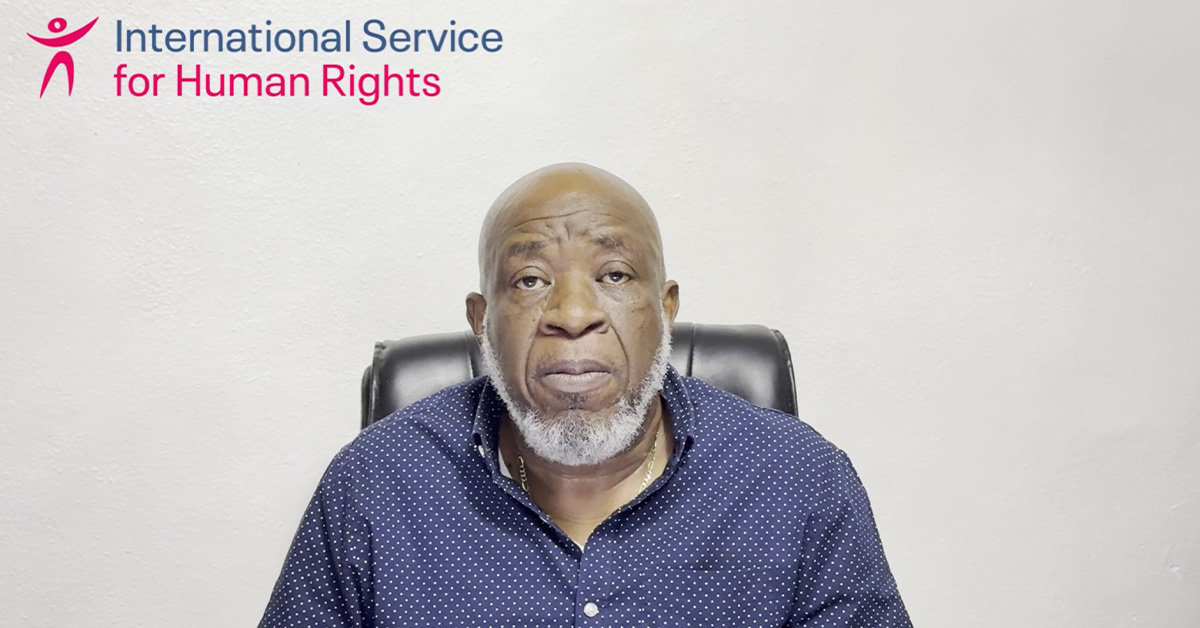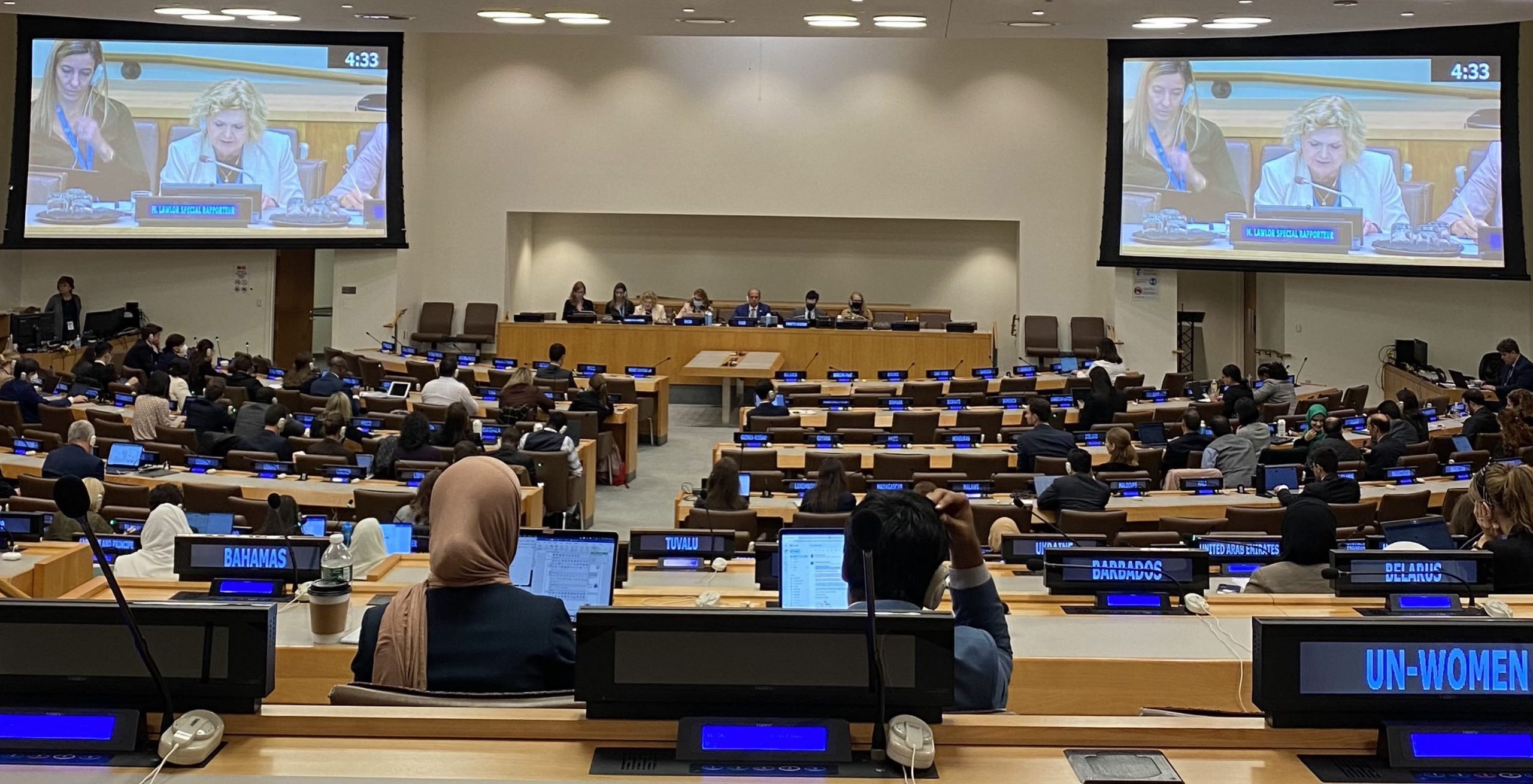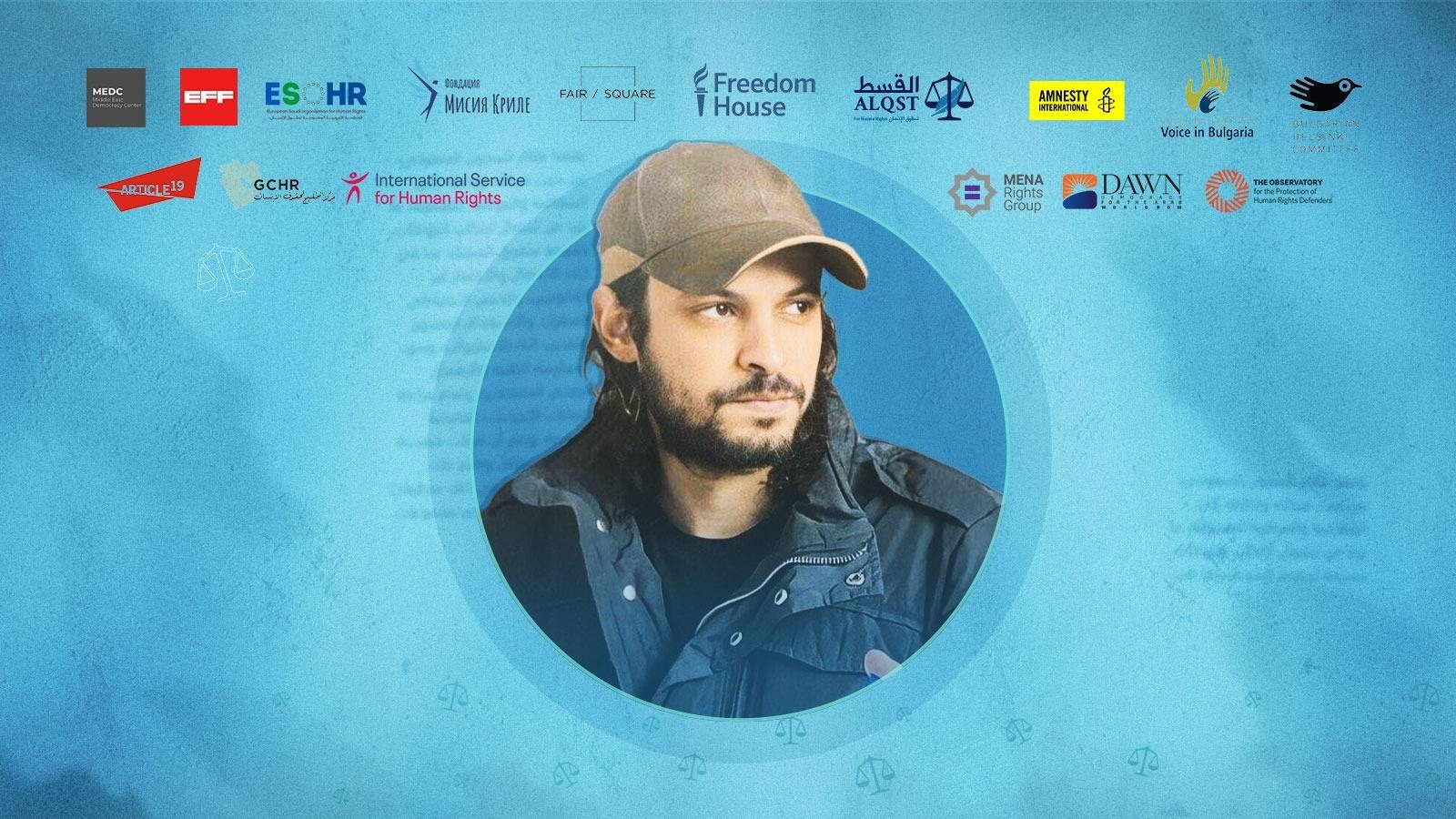On Thursday 14 October 2022, Mary Lawlor, the Special Rapporteur on the situation of human rights defenders (HRDs) presented her report ‘Refusing to turn away: human rights defenders working on the rights of refugees, migrants and asylum-seekers’ to the 77th session of the General Assembly’s Third Committee. The report analysed the vulnerable situation of HRDs working on the rights of migrants, asylum-seekers and refugees and the administrative, legal, practical and societal barriers they face. This included examples in some States with laws to assist people in danger, where HRDs doing just that are targeted and prosecuted. The report also makes recommendations to States and other stakeholders on providing a safe, accessible and supportive environment for HRDs that work to promote and protect the rights of migrants, asylum-seekers and refugees.
Alarmingly, the report identified trends including a wide range of attacks against HRDs working on the rights of migrants, asylum-seekers and refugees, such as vilification, smear campaigns, reprisals, imprisonment, deportation, threats, kidnapping and murder. Lawlor also highlighted that HRDs who are themselves migrants face additional risks, not only because of the work they do but because of the possibility of jeopardising their immigration status. Sarah Brooks, ISHR’s lead on migrant rights defenders, emphasises that this is a global problem. ‘The report highlights cases from almost every region, and underlines two major barriers to facilitating this work: the application of a national security lens to every aspect of migration, and fundamental lack of political will to meaningfully protect and empower migrants.’
While expressing concern about the dismal situation for migrant rights HRDs, the Special Rapporteur also highlighted some positive actions. Lawlor referred to judicial processes where cases against HRDs helping migrants, refugees and asylum seekers were dismissed in France, Germany, Poland, the U.S and Italy, including on the basis that the crime was ‘non-existent’. The Special Rapporteur also lauded laws for the protection of HRDs passed in Côte d’Ivoire and Mongolia.
‘Some governments use or abuse existing laws – which may have been crafted with good intent – to enable the prosecution and criminalisation of defenders for conducting lifesaving work. We echo the Special Rapporteur’s calls for Governments to stop misusing criminal law to target and prosecute HRDs, and instead to provide, in law and in practice, a safe, accessible and supportive environment for HRDs, which might include laws for their recognition and protection,’ added ISHR’s Tess McEvoy.
During the interactive dialogue, several States acknowledged the essential role HDRs play in promoting and defending essential rights of migrants, refugees and asylum-seekers. They also encouraged all States to protect HRDs, and reiterated their support for the Special Rapporteur’s mandate. Disappointingly, Vietnam, Hungary and Russia questioned the veracity of facts included in the report relevant to their national context. In response, Lawlor confirmed that multiple and well documented academic sources with ‘no partiality of any kind’ were used in the development of the report, as well reports from other multilateral institutions.
In closing, Lawlor made recommendations to States on how to better protect HRDs, and highlighted that many governments are failing in their moral and legal obligations to protect them. Lawlor called on States to acknowledge HRDs, to give them visibility, and to investigate and prosecute attacks against them, both by State and non-State actors.
Download as PDF




